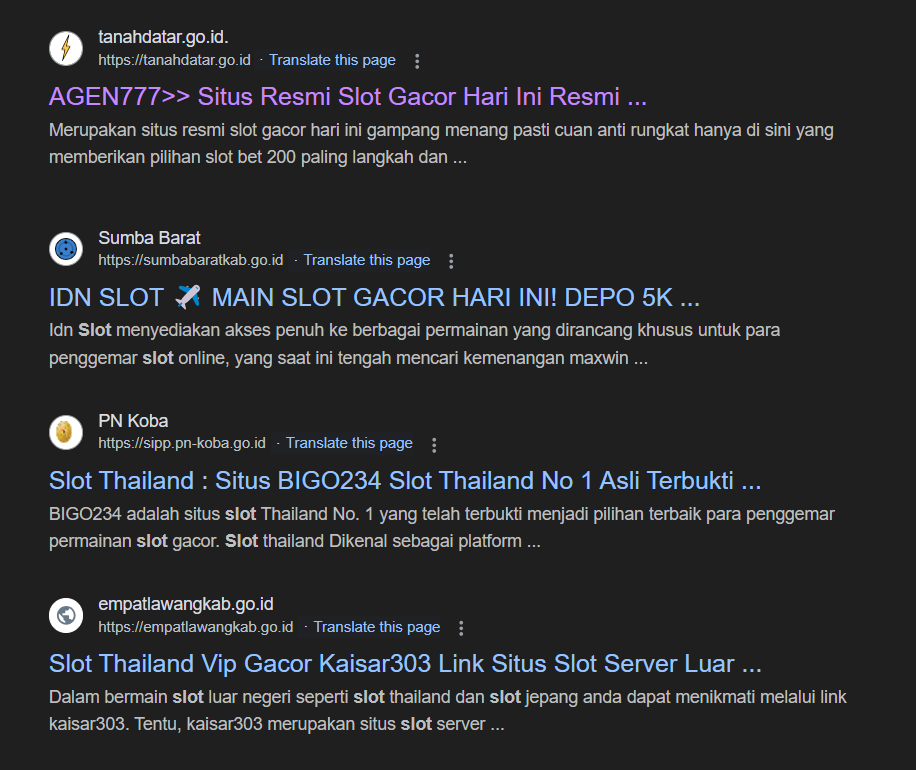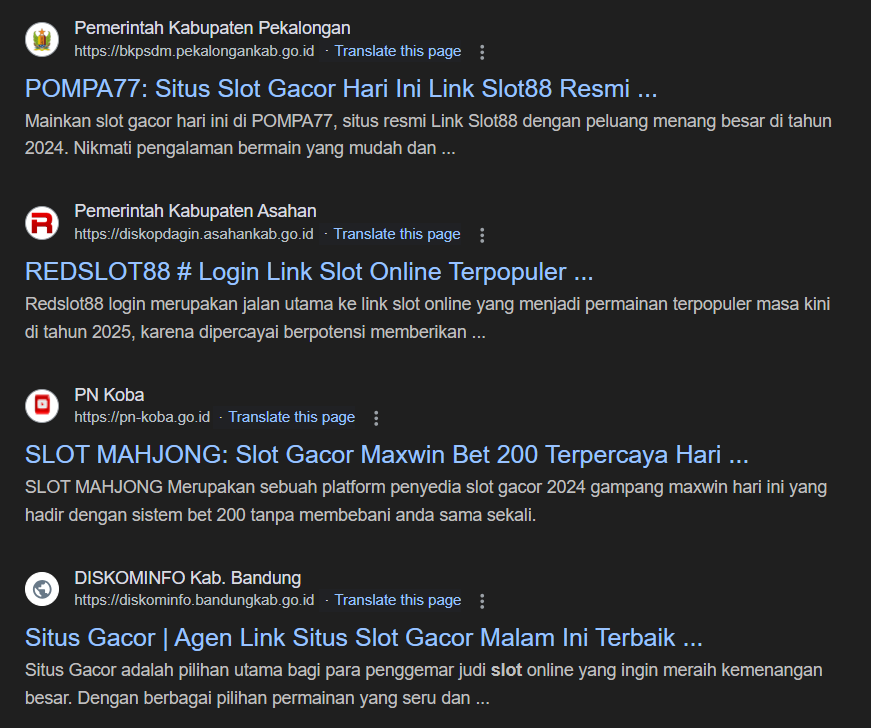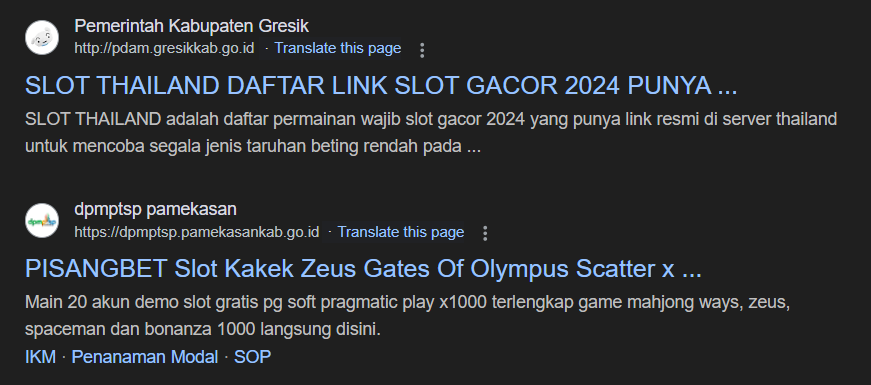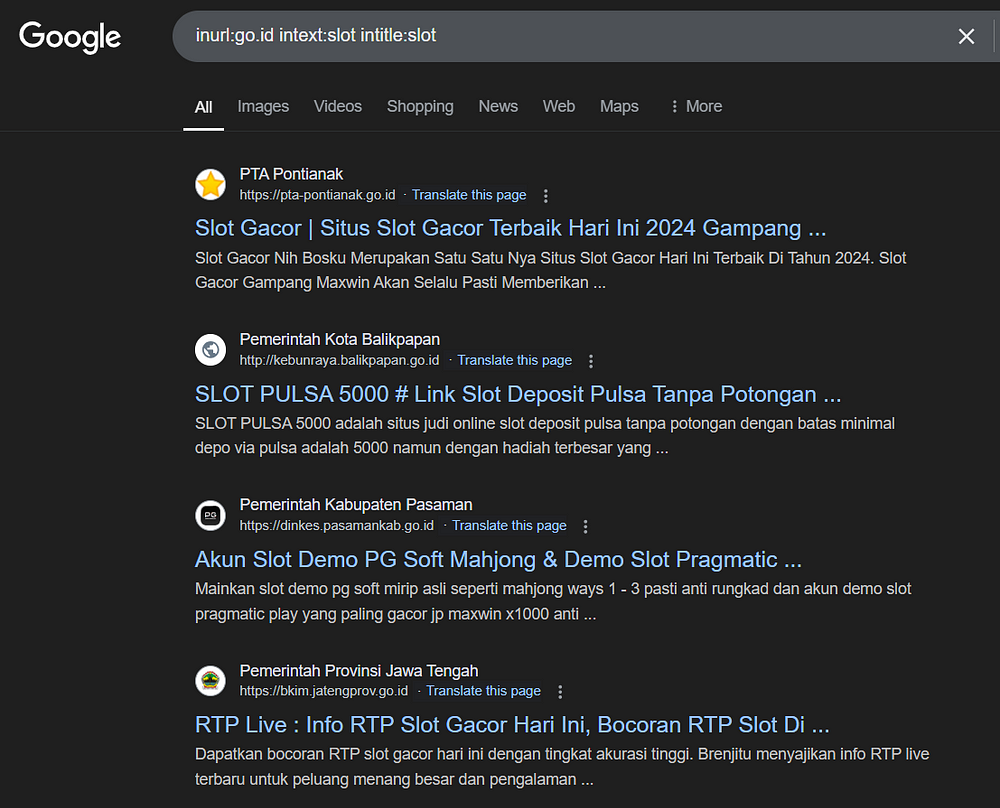
Background
The article “Simple Include Statement Hides Casino Spam” discusses a spam technique that uses a simple ‘include’ statement in PHP code to hide casino spam content. The author explains how spammers insert an ‘include’ statement into PHP files that directs to an external file containing spam content. This content is then displayed on the website without the owner’s knowledge, potentially damaging the site’s reputation and lowering its SEO ranking. The author also provides code examples and recommendations to prevent this technique, such as inspecting and verifying included files and ensuring the website’s security.
Indonesia Government Website ?
Government websites are often seen as reliable and authoritative platforms. However, recent observations suggest a troubling trend where official government websites are being exploited to host content related to gambling, including keywords like “slot” and “casino.” This alarming discovery raises questions about the security of these websites and the potential misuse of their infrastructure.
Examples of Compromised Websites
A search for gambling-related keywords revealed multiple instances of government domains displaying unauthorized content:
- tanahdatar.go.id: Advertisements for “slot gacor” (profitable slot games).
- sumbabaratkab.go.id: Promotional materials for online slot games targeting high winnings.
- pn-koba.go.id: Descriptions of slot platforms like “BIGO234” and “Mahjong Ways.”
- diskominfo.bandungkab.go.id: Gambling promotions under the guise of “Situs Gacor.”
- dpmptsp.pamekasankab.go.id: Demo games for popular online slot providers.




These instances indicate a widespread compromise of government sites, potentially harming their credibility and exposing users to risks.
Why This Is a Serious Concern
Damaged Reputation: Government domains, particularly those ending in .go.id, are associated with legitimacy and authority. Hosting gambling content undermines this reputation and erodes public trust.
SEO Manipulation: Cybercriminals use these trusted domains to boost search engine rankings for gambling platforms, leveraging the authority of government websites for malicious purposes.
Exploitation of Vulnerabilities: Such incidents often point to security vulnerabilities, such as:
- Outdated CMS platforms or plugins.
- Inadequate protection of administrative pages.
- Poor access control and authentication mechanisms.
Broader Implications:
- Malware Risks: Redirecting users to gambling sites may expose them to malware.
- Loss of Public Trust: Citizens may avoid using government websites, fearing data theft or exposure to malicious content.
- Legal Ramifications: Unauthorized gambling content on government platforms may lead to legal scrutiny and penalties.
Recommended Actions
To address these incidents, government agencies should prioritize immediate remediation and long-term security measures:
Conduct a Security Audit:
- Review logs for suspicious activities.
- Identify and patch vulnerabilities in the website’s CMS, plugins, or server configurations.
- Scan files for unauthorized modifications or additions.
Restore from Clean Backups: If unauthorized content is found, restore the website using a verified backup free from malicious changes.
Implement Advanced Security Measures:
- Enable Web Application Firewalls (WAF) to filter malicious traffic.
- Enforce strong password policies and multi-factor authentication.
- Regularly update and monitor CMS platforms and associated components.
Monitor and Maintain:
- Schedule routine security assessments to detect anomalies early.
- Employ automated monitoring tools to alert administrators to unusual activities.
Conclusion
The compromise of government websites to host gambling-related content is a stark reminder of the importance of robust cybersecurity practices. Proactive measures, combined with consistent monitoring, are essential to protect the integrity of these vital platforms. By addressing these vulnerabilities promptly, government agencies can safeguard their digital assets and restore public trust.
